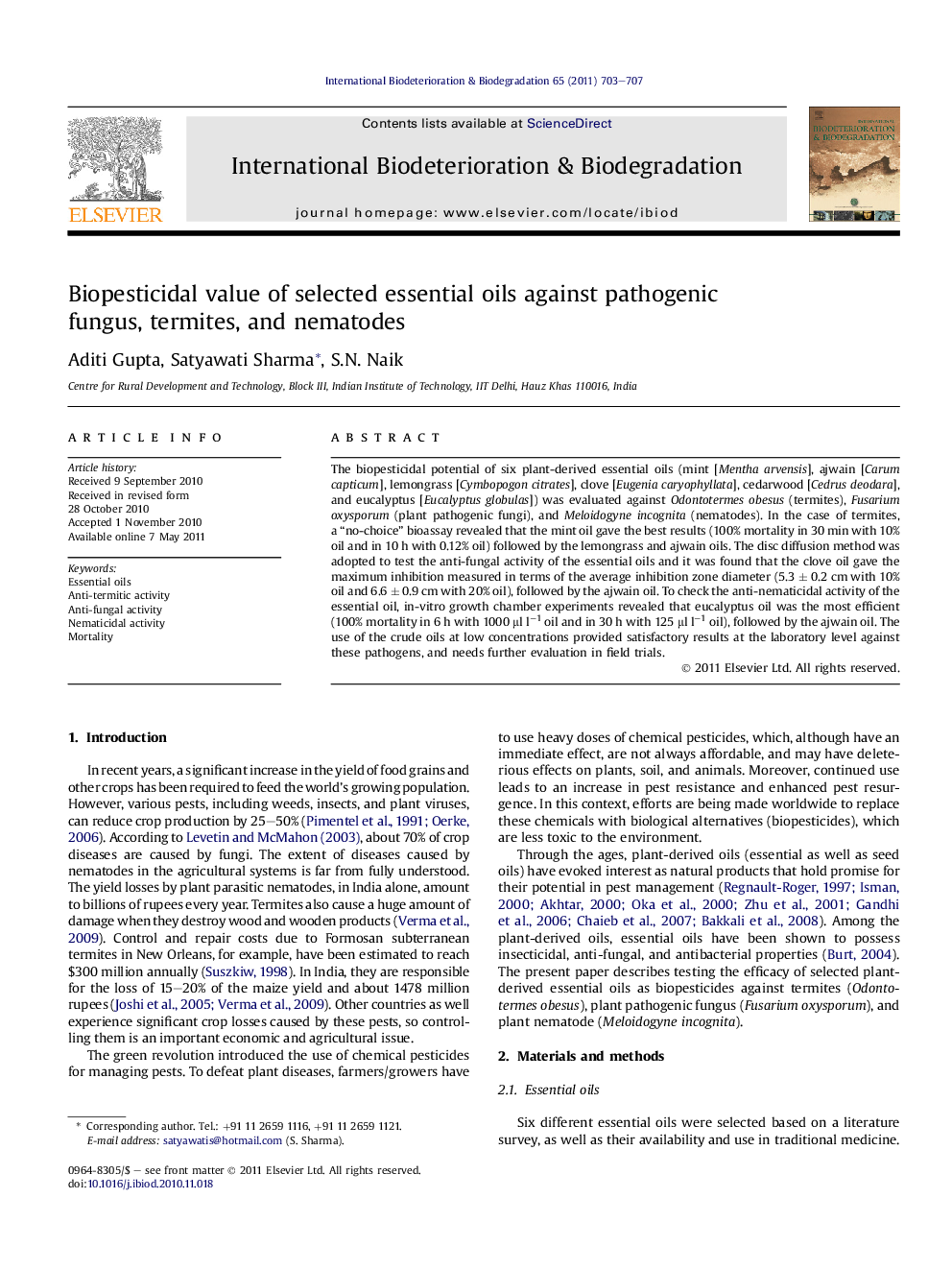| Article ID | Journal | Published Year | Pages | File Type |
|---|---|---|---|---|
| 4365304 | International Biodeterioration & Biodegradation | 2011 | 5 Pages |
The biopesticidal potential of six plant-derived essential oils (mint [Mentha arvensis], ajwain [Carum capticum], lemongrass [Cymbopogon citrates], clove [Eugenia caryophyllata], cedarwood [Cedrus deodara], and eucalyptus [Eucalyptus globulas]) was evaluated against Odontotermes obesus (termites), Fusarium oxysporum (plant pathogenic fungi), and Meloidogyne incognita (nematodes). In the case of termites, a “no-choice” bioassay revealed that the mint oil gave the best results (100% mortality in 30 min with 10% oil and in 10 h with 0.12% oil) followed by the lemongrass and ajwain oils. The disc diffusion method was adopted to test the anti-fungal activity of the essential oils and it was found that the clove oil gave the maximum inhibition measured in terms of the average inhibition zone diameter (5.3 ± 0.2 cm with 10% oil and 6.6 ± 0.9 cm with 20% oil), followed by the ajwain oil. To check the anti-nematicidal activity of the essential oil, in-vitro growth chamber experiments revealed that eucalyptus oil was the most efficient (100% mortality in 6 h with 1000 μl l−1 oil and in 30 h with 125 μl l−1 oil), followed by the ajwain oil. The use of the crude oils at low concentrations provided satisfactory results at the laboratory level against these pathogens, and needs further evaluation in field trials.
